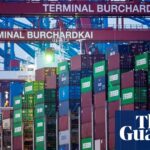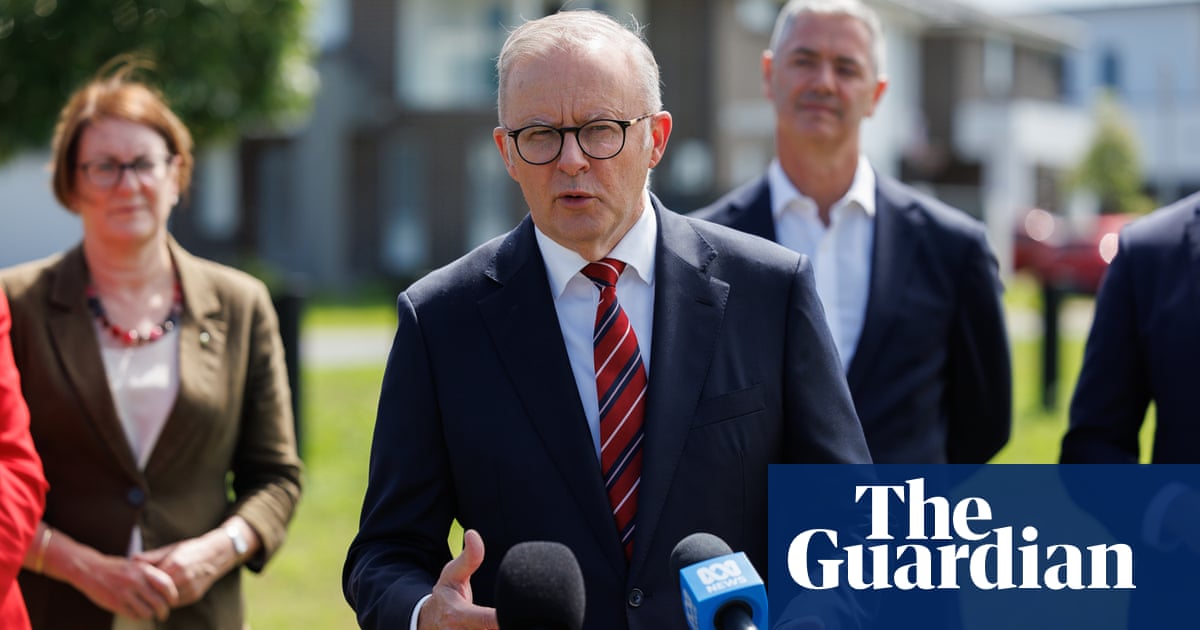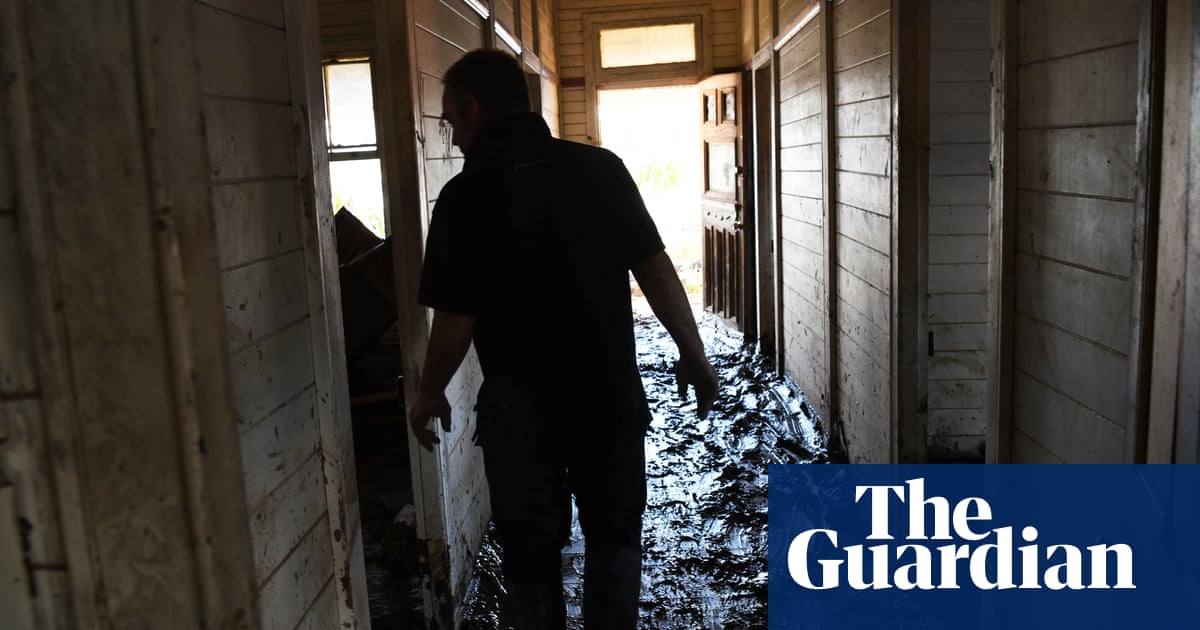Anthony Albanese has vowed to continue Australia’s action on climate change after United States president Donald Trump once again moved to pull his country out of the Paris agreement.
The prime minister acknowledged Trump’s move would “impact the globe” on Tuesday but said Australia remained a sovereign nation with an interest in meeting the challenge of extreme weather events.
“We know that we’re particularly vulnerable, but also because even if you didn’t accept the science of climate change, the economic opportunity that is there is enormous for us, not just to reduce emissions, but to grow our economy and grow jobs,” he said.
The foreign affairs minister, Penny Wong, earlier congratulated Trump on his inauguration, but said Australia should be “realistic” about his pledge to implement an “America first” agenda.
During his inauguration, as one of his first acts as president, Trump signed an executive order to pull the US out of the Paris agreement – the second time he has done so while in office.
The Paris agreement is a legally binding commitment to hold global heating at below 2 degrees celsius – and ideally 1.5 degrees – compared to pre-industrial levels. Its signatory countries have also agreed to a target of achieving net zero emissions globally by 2050, with interim emissions reduction targets for 2030 and 2035. It will take about a year for the US’s withdrawal to be formalized.
Last November, the climate change minister, Chris Bowen, declared the global agreement was working” as it had brought the world back from “the brink of catastrophic [4 degrees] warming”.
The Greens leader, Adam Bandt, said Trump’s move demonstrated he was a “danger to democracy, a danger to peace and a danger to the climate”.
“Now is the time for Australia to reassess its relationship with the United States. Now that this dangerous demagogue is at the helm. Australia should not be joined at the hip now to Donald Trump,” he said.
Queensland Liberal National senator, Matt Canavan, who has long been vocally against Australia committing to net zero by 2050 against his party’s policy, said it no longer “made sense” for Australia to stay in the agreement.
“As much as I welcome President Trump getting out of the Paris Agreement and finally, belling the cat on that scam, the challenge for Australia is that he’s going to take the US to a level of energy competitiveness beyond where we’re at,” he told Guardian Australia.
Shortly after attending the inauguration in Washington, Wong sidestepped questions on what Trump’s sweeping and controversial policy platform on trade and social issues could mean for Australia and the work of its diplomats in America.
The foreign affairs minister said she would seek to highlight Australia’s positive contribution to the US economy, but warned that Australia should prepare for Trump to make changes to America’s direction and focus on his domestic interests.
“President Trump has made it very clear he’s going to do things differently. He’s made it clear he’s going to implement an America first agenda. And we should, I think, be realistic about that,” Wong told ABC Radio National.
In social media posts, Wong praised the US as “Australia’s closest ally” and said she looked forward to “working together with the new Administration to deliver on our shared interests”.
The then-Turnbull government in 2018 negotiated exemptions from Trump’s steel and aluminium tariffs during his first term in office. There are concerns his second administration may level similar tariffs on Australian exports.
In a round of TV and radio appearances on Tuesday morning, Wong said she was stressing to US counterparts that Australia imported much more from America than it exported, providing “great value” to its ally, as an argument against tariffs on Australian goods.
after newsletter promotion
Wong said the government would “be advocating for Australia’s interest” in any tariff discussions.
“Obviously, those announcements have not yet been made, but what I would say is this relationship matters to our economic interests and to our national security interests,” she said.
But asked about some of Trump’s social policies – including signing an executive order to only recognise two genders, male and female – Wong said she wouldn’t pass comment.
“These are matters for the United States, just as, you know, these are matters that Australia has our approach on,” she told Radio National.
“I don’t intend, particularly while I’m here in Washington, to comment on President Trump’s domestic policy announcement.”
Asked how the gender policy could affect government representatives or public servants working with American counterparts, Wong again declined to comment.
“I have a job to do here in Washington, and that is to advocate for Australia’s interests, our security interests and our economic interests, and that’s what I’ll be doing,” she said.
On Monday night, prior to Trump’s inauguration, Albanese also could not guarantee Australia would not be harmed by the new president’s tariff plans, but said he had been buoyed up by a phone call with Trump shortly after his November election win.
“I made the point to President Trump that the United States has enjoyed a trade surplus with Australia since the Truman presidency. It’s been there for a long time and the United States is, of course, a major investor here in Australia and the relationship between our two economies is so important,” Albanese told the ABC’s 7.30 program.
“So, I’m very confident that we will work these issues through because they’re in the interests of both Australia and the United States … I expect that the relationship between Australia and the United States will remain strong.”
United Australia party senator Ralph Babet, a vocal supporter of Trump, posted on his social media “God is back”, “we are back” and “the devil has been cast out” after the new president’s inauguration – which he called “the greatest moment in your lifetime so far”.










